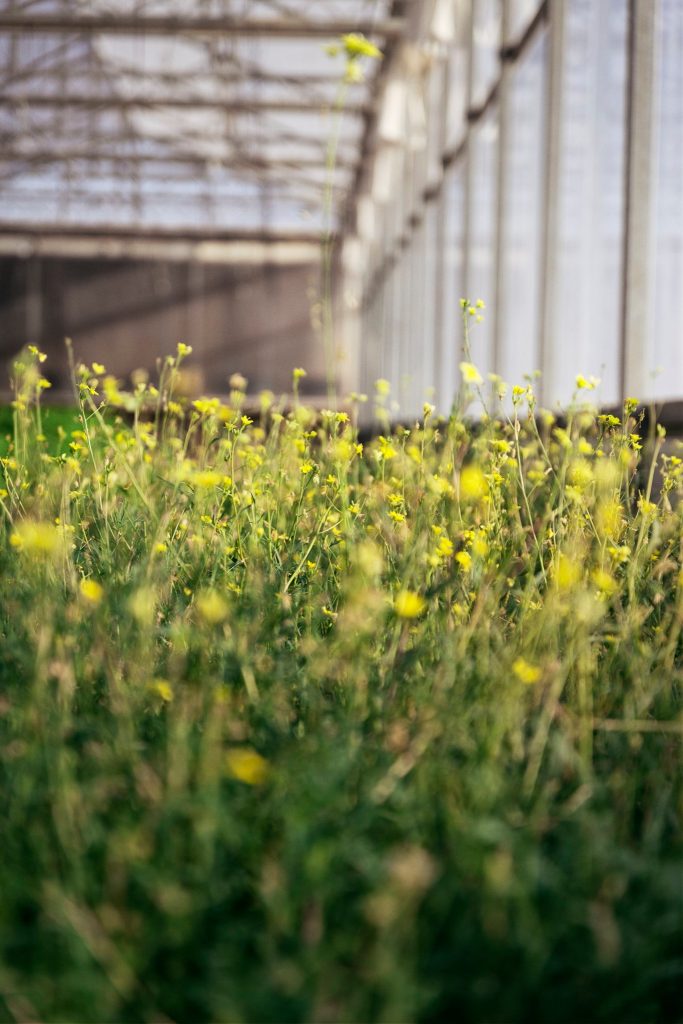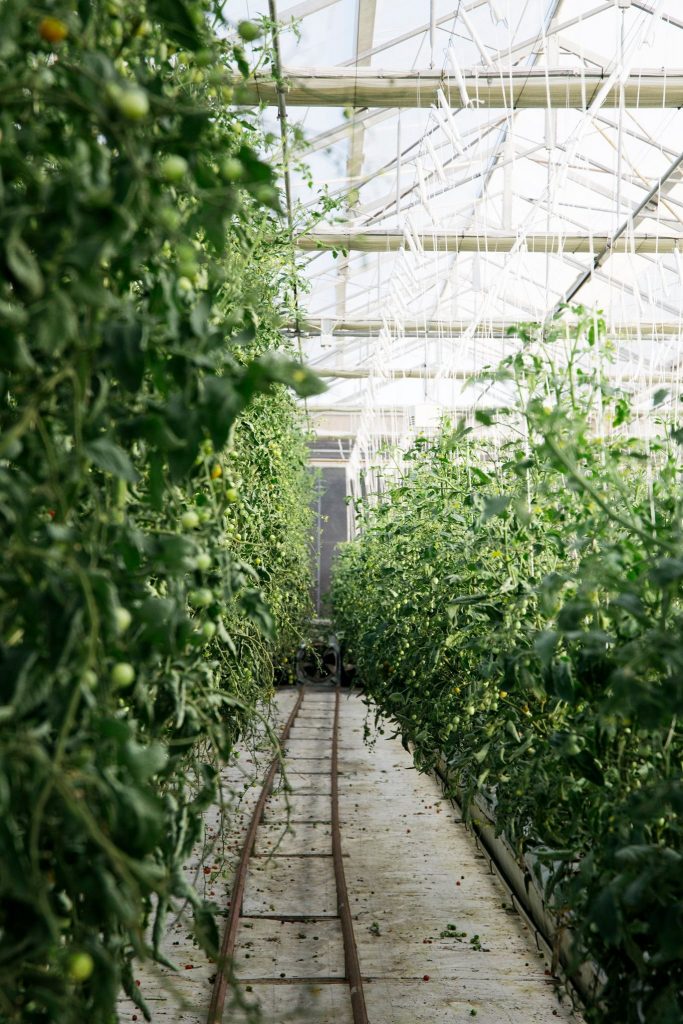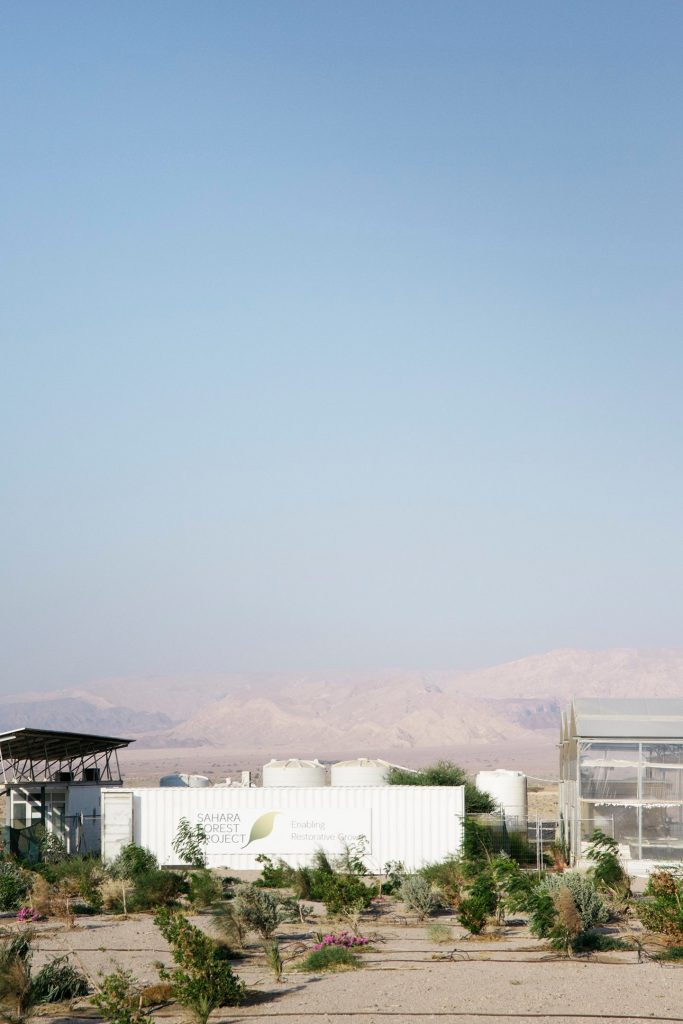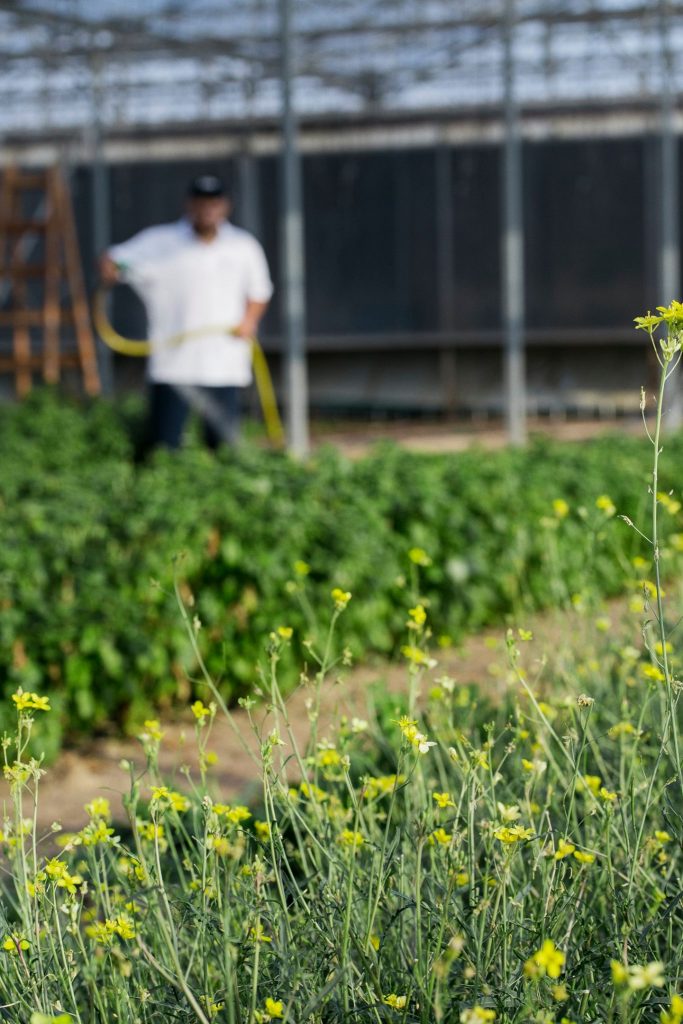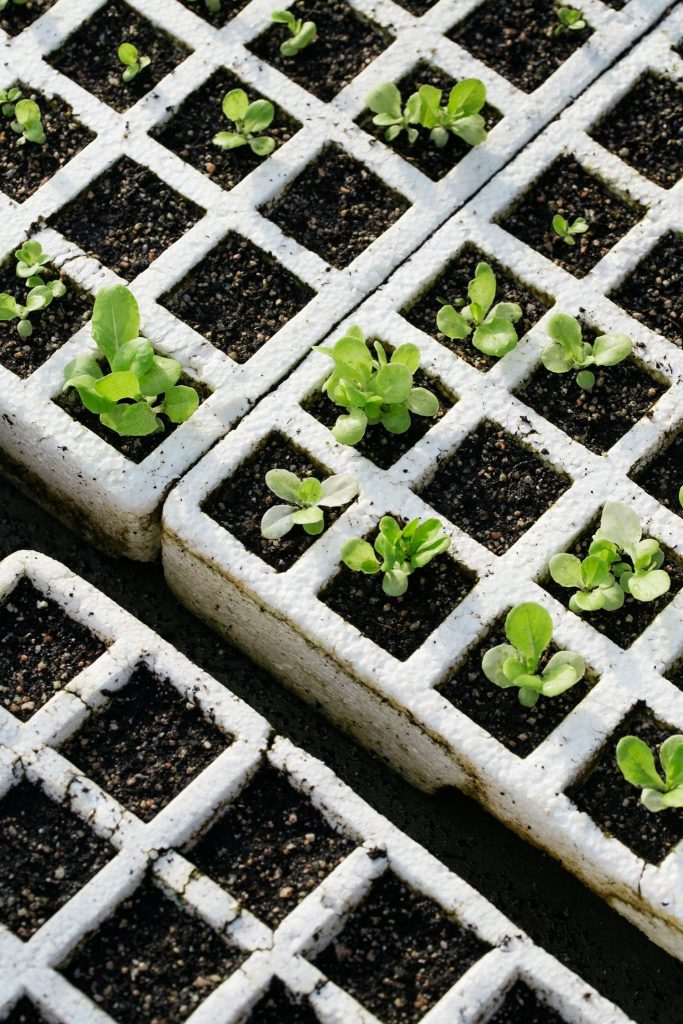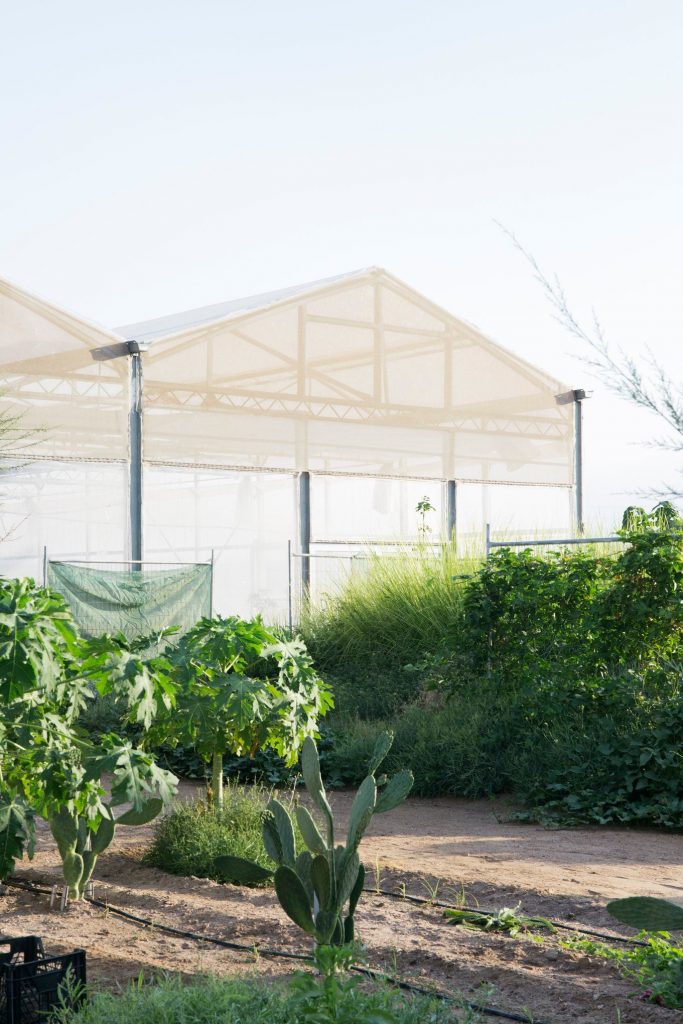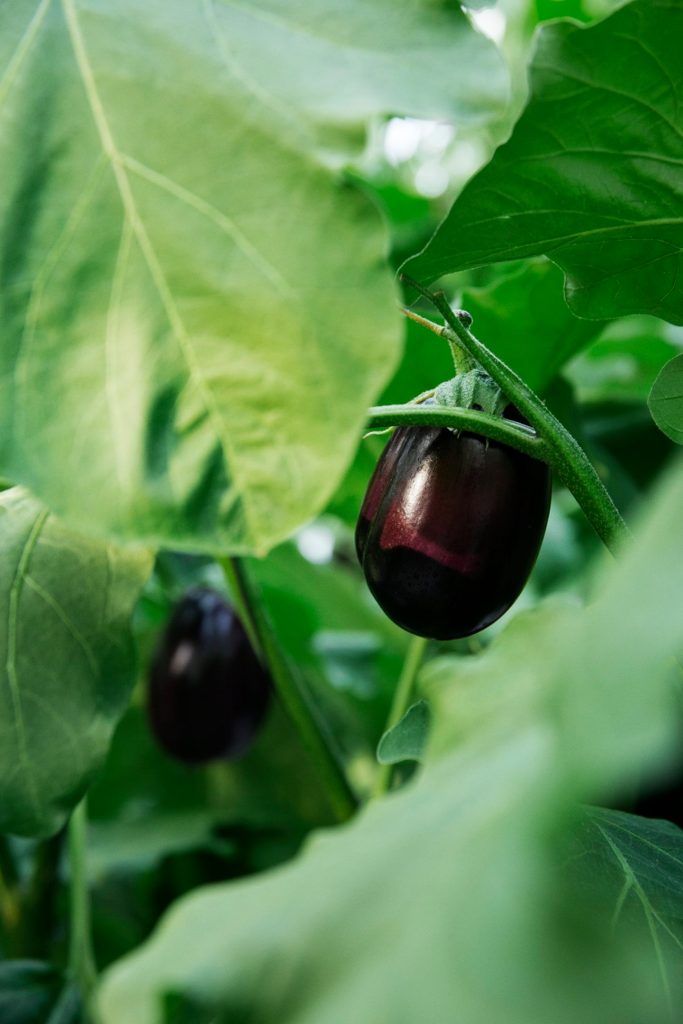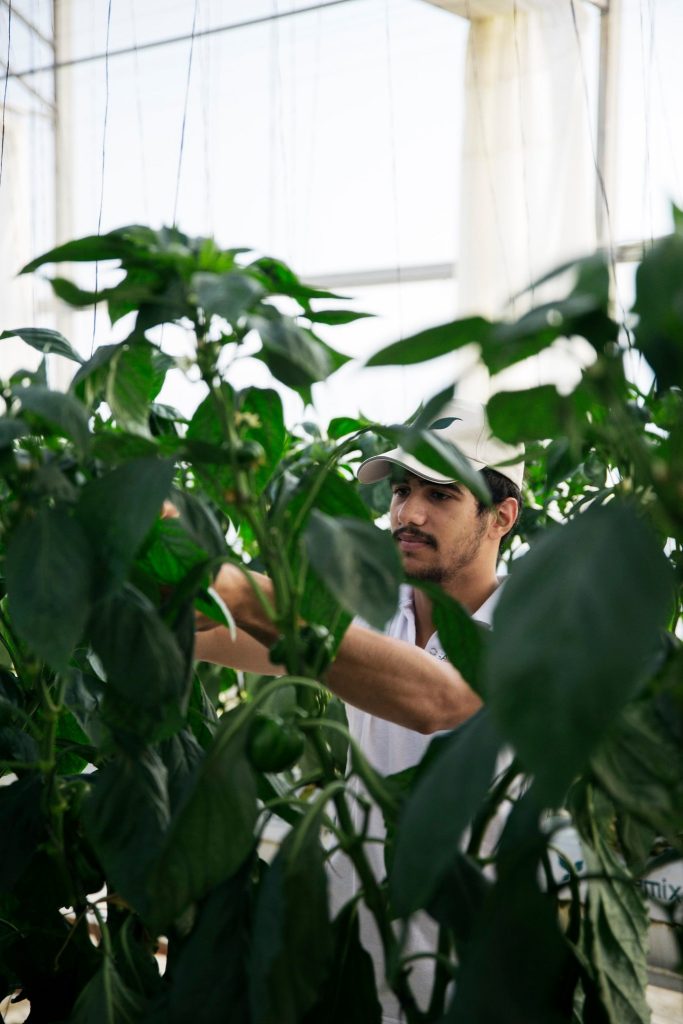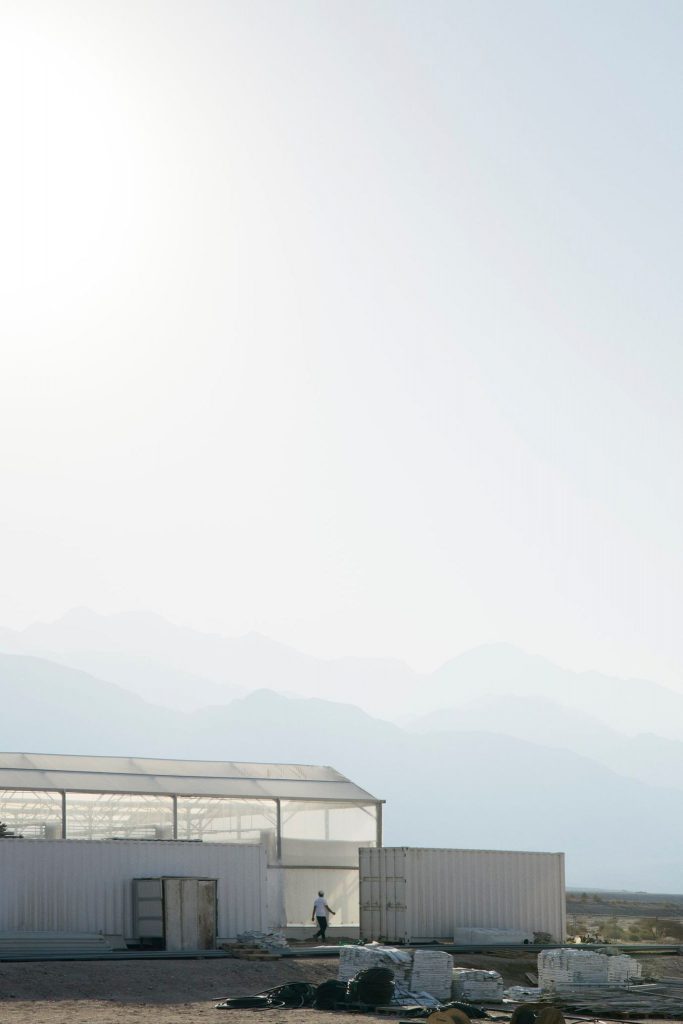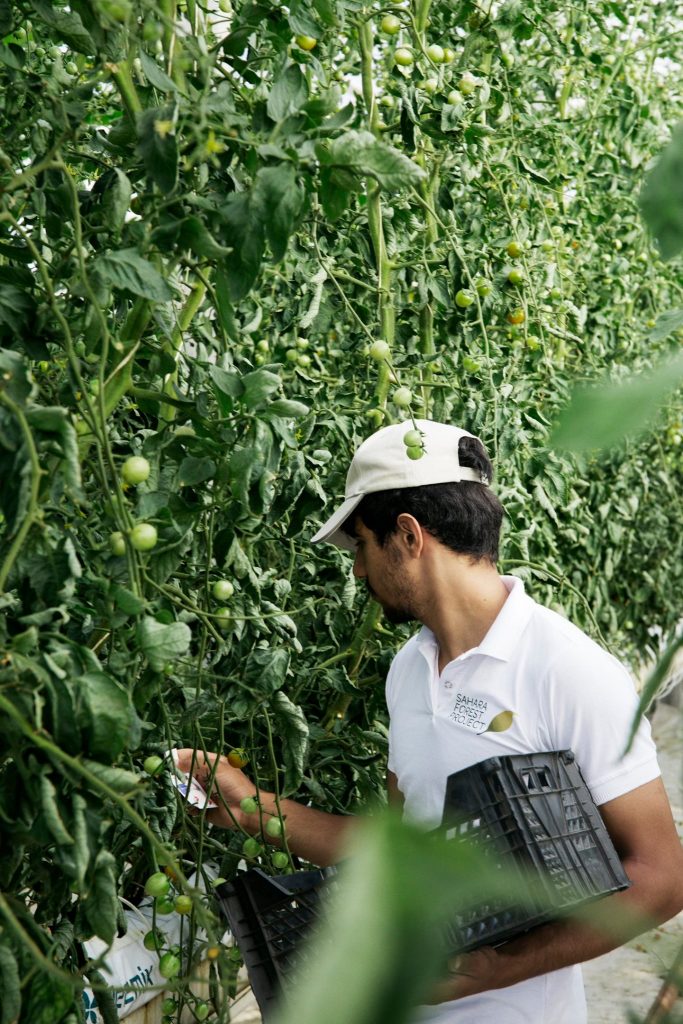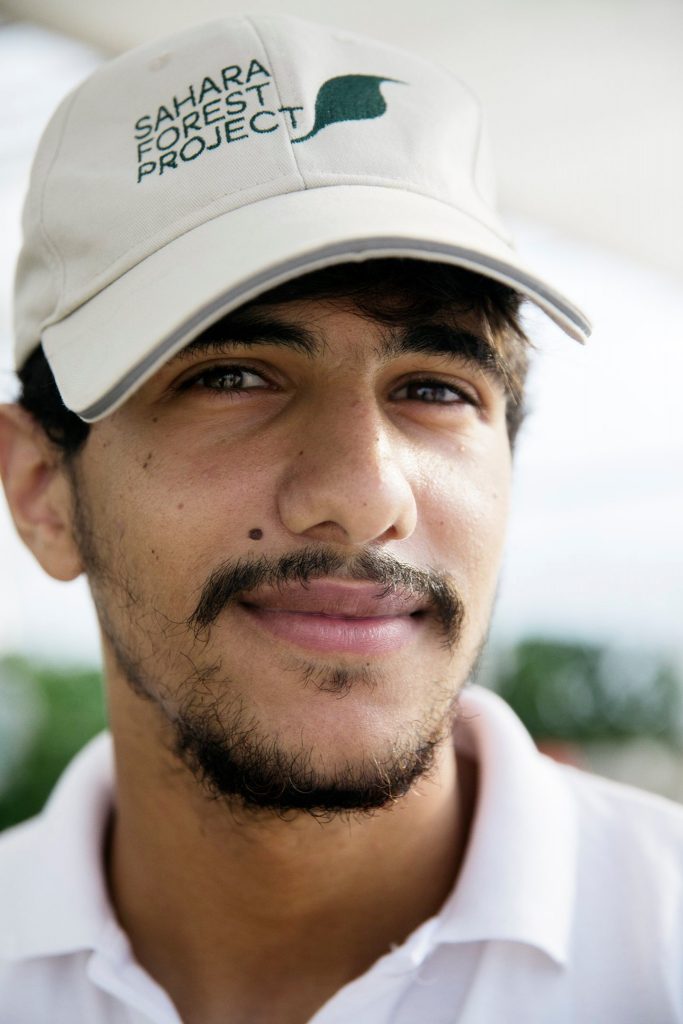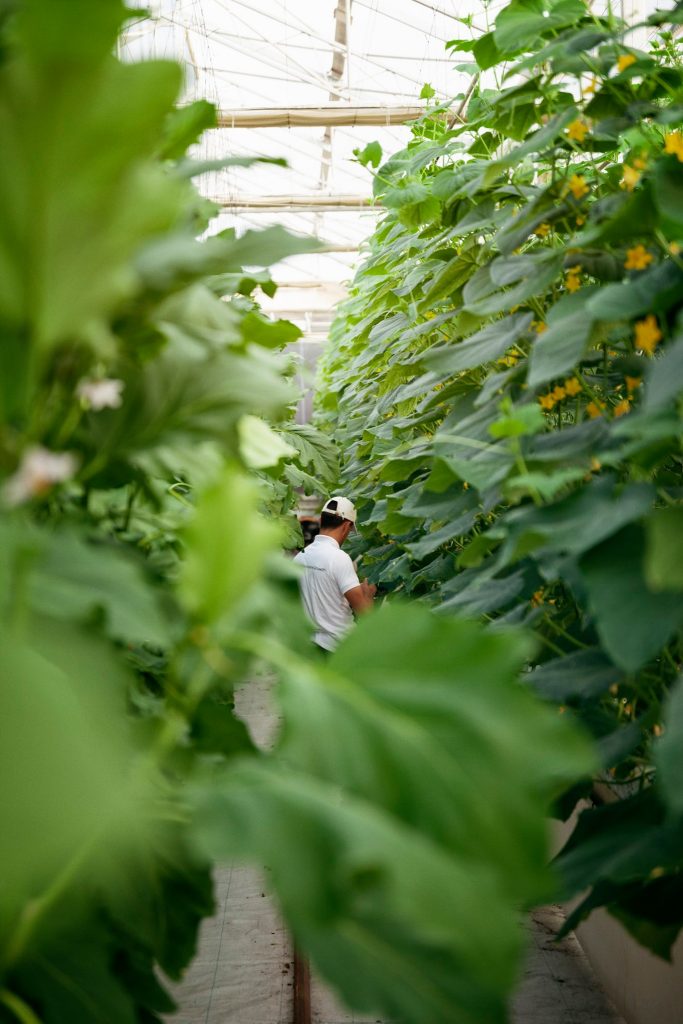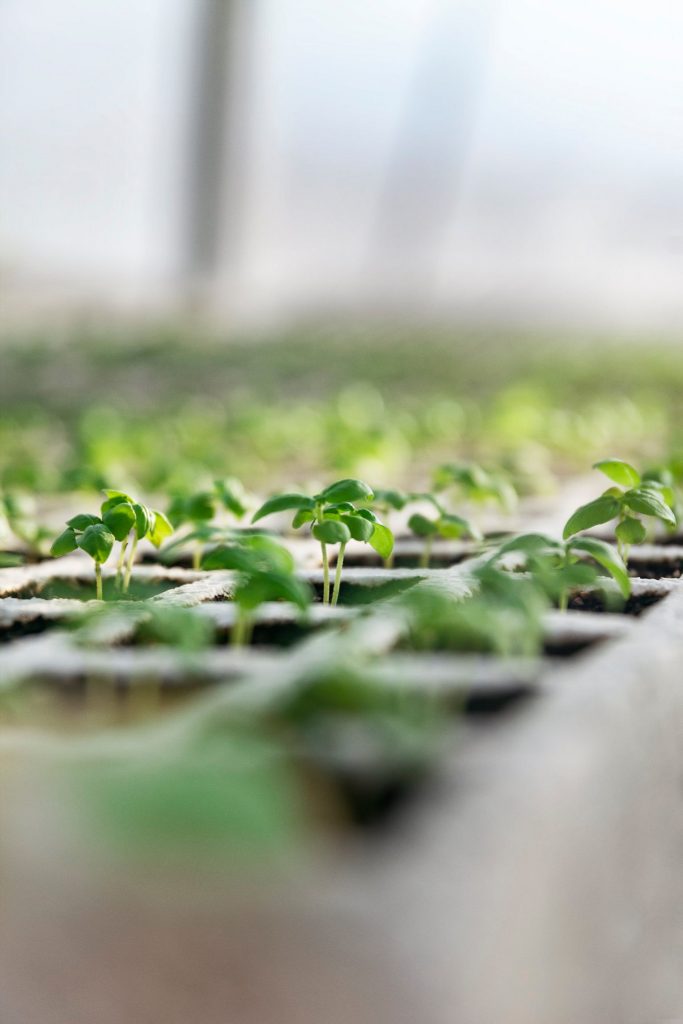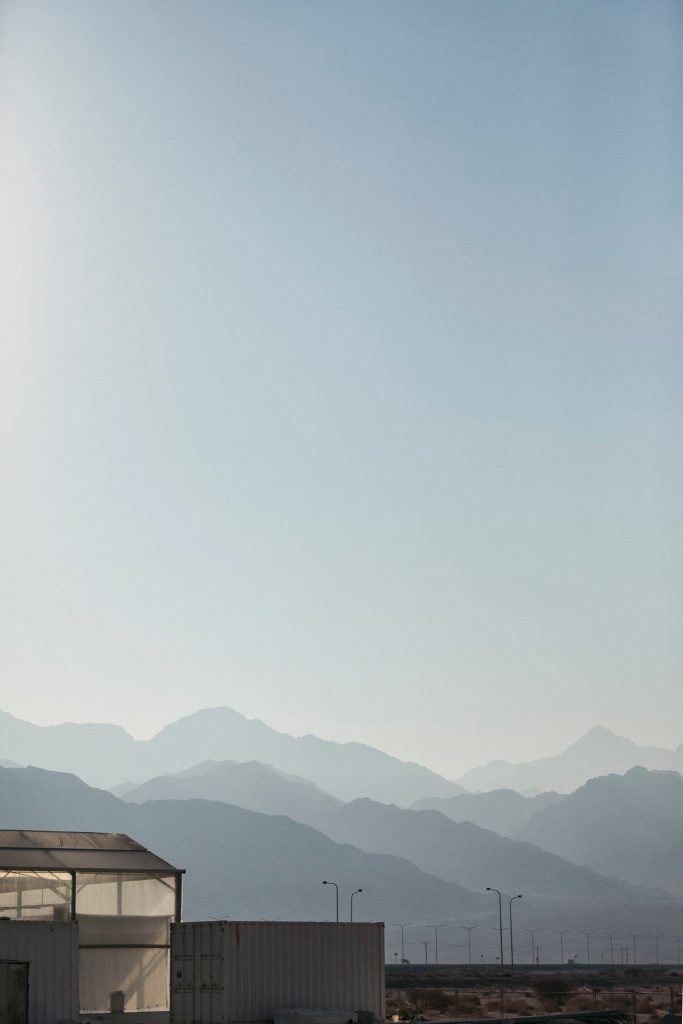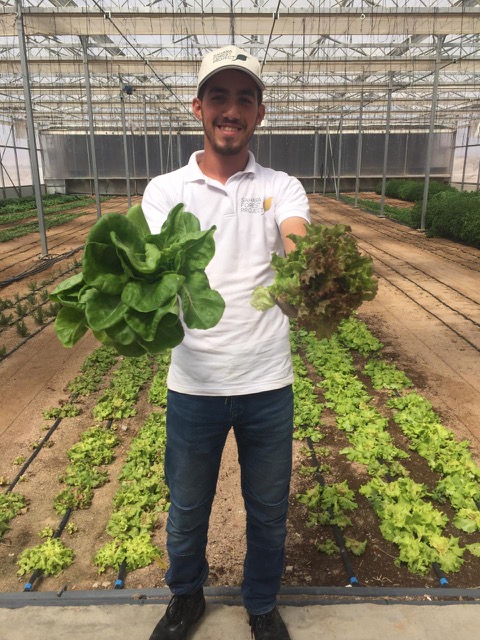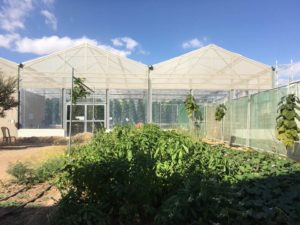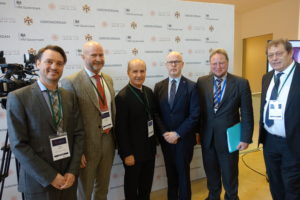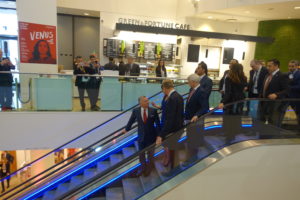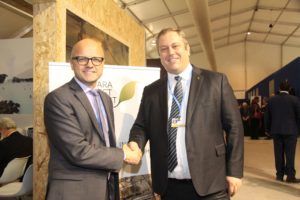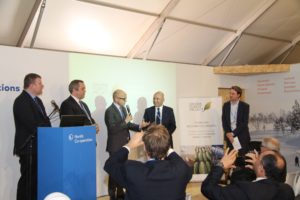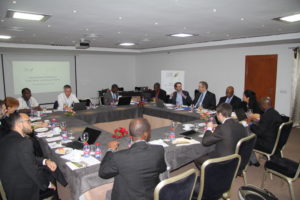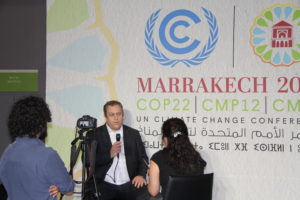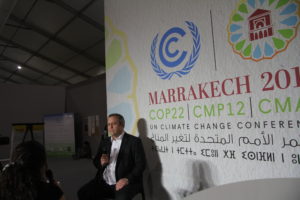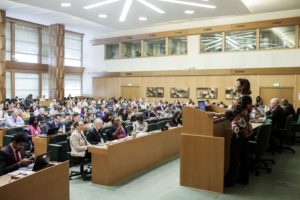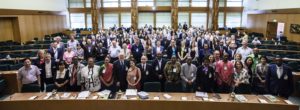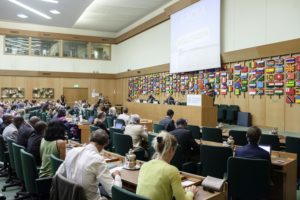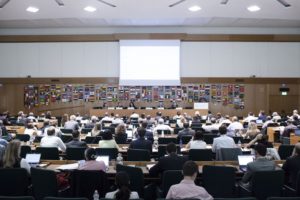The Sahara Forest Project Foundation is currently in Madrid, invited to participate at the UN Climate Summit #COP25 together with 25.000 people from around 200 countries.
Recently, we had a visit from Danish photographers Simon Foskjær & Rikke Westesen at the facility in Aqaba. As their photos are stunningly beautiful, we wanted to share them with you guys! Thanks Simon & Rikke!
For more photos, please see their websites:
http://simonfoskjaer.dk
https://rikkewestesen.com
A milestone for innovation and green business development in Jordan
Press Release by Sahara Forest Project on February 28th 2019
Jordan: Growth and Opportunities, London Initiative.
The Sahara Forest Project, Bellona Foundation and EY sign a new partnership agreement to boost climate-smart food production and greening the desert in Jordan using sunlight and seawater.
– We are proud to be invited to this important high-level conference in London in order to launch a new milestone agreement for the Sahara Forest Project operations in Aqaba in Jordan, Frederic Hauge, founder of the Sahara Forest Project, said.
The Sahara Forest Project uses sun, saltwater, desert areas and CO2 to produce food, freshwater, biomass and clean energy.
Under the patronage of His Majesty King Abdullah II of Jordan and His Royal Highness Crown Prince Haakon of Norway, the Sahara Forest Project Launch Station in Aqaba was opened on September 7th 2017.
As public and private stakeholders went to the London conference, the innovative project launched a new partnership with global firm EY in front of key supporters and financial contributors.
The Norwegian State Secretary Mr. Audun Halvorsen, Dr. Michael Koehler, Director for the neighbourhood South, in the European Commission DG NEAR,and former President of Costa Rica, Mr. José María Figueres attended the signing ceremony.
EY Head of Digitalization and Innovation Mr. Terje Andersen and SFP Founder Frederic Hauge signed the new agreement.
Encouraged by both local and national stakeholders in Jordan, as well as the international community, the new agreement with global firm EY represent an important next step in the commercialization and development of the current 3 hectare Water-Energy-Food-producing demonstration facility close to Aqaba airport.
From left: Kjetil Stake (SFP), Terje Andersen (EY), Jose Maria Figueres (ex-president Costa Rica), Audun Halvorsen (Norway), Michael Köhler (EU), Frederic Hauge (Founder SFP and President Bellona Foundation)
Creating a regional powerhouse of expertise
EY, the latest collaborator to the realization of the Sahara Forest Project in Jordan was presented by Mr. Terje Andersen in London.
–As a leading global professional services firm, EY has agreed to utilise its competences, experiences, and office network to support the innovative and promising Sahara Forest Project. It is a perfect match with EY’s overall vision of “Building a better working world”. We see a great potential in this partnership and look forward to working with Sahara Forest Project in further scaling up its operations, Mr Andersen said.
The ambitious project is realized with financial support from the Norwegian government and the European Union as the two largest donors.
Mr. Audun Halvorsen, State Secretary of the Minsitry of Foreign Affairs travelled from Oslo to take part. The Norwegian government contributed with approx. 1 million euros in support in 2018.
-The Sahara Forest Project demonstrates a unique model for sustainable production of food, water and energy in the desert, which we hope will inspire other initiatives and create new opportunities for Jordan. This innovative project benefits climate, people and business. Norway remains committed to continue its support to the project by providing approximately 1 million USD for the period 2018-2020, Mr. Halvorsen said.
European Union Commissioner Mr. Johannes Hahn sent the following statement in writing:
-The European Union is pleased to fund together with Norway such an innovative initiative to introduce Green Energy applications and implement the nexus approach that supports in parallel energy, water and food security while creating jobs in Jordan, the EU Commissioner Mr Johannes Hahn reflected in a written statement.
Representing the European Commission at the side event in Lomndon, Mr. Michael Köhler emphasized at the that the support to the Sahara Forest Project was a part of the European Union and Jordan green energy partnership, where the EU has assisted Jordan to lead the green energy development in the Middle East with over 160 million euros since 2009.
Former President of Costa Rica, Mr. José María Figueres is a longtime friend of both the Sahara Forest Project and the Kingdom of Jordan. –Combining ocean water with carbon dioxide from the atmosphere and adding sunlight, to produce food, freshwater and clean energy sounds like amiracle. In fact, it is not. That is what the Sahara Forest Project does. With a successful proof of concept in Aqaba, we now need to scale this wonderful invention of the Bellona Foundation, Mr. Figueres said.
Fighting drought and climate change with sustainable and profitable food production in the desert
After 1,5 years of operations in Jordan, the Sahara Forest Project saltwater-cooled greenhouses have demonstrated its capacity to grow high-end vegetables all-year round, sold to the local market and tourism sector in Aqaba.
In order to compare results with the succesful former pilot model in Qatar, the main focus of Sahara Forest Project was to grow snack cucumbers for the first year. Now, different vegetables such as pak choi, cherry tomatoes, herbs and lettuce are trialed out and tested. In addition, outside the greenhouses, more than 90% of the different outdoor crops planted have survived this period of operations.
Founder Frederic Hauge mentioned that the Sahara Forest Project findings combined with the new agreement with EY demonstrates that this concept could be commercialized and deployed both in large scale in Jordan and elsewhere. –For us, failure is not an option. I truly believe the facility in Jordan will serve as an inspiration to other dry areas of the world with freshwater scarcity and proximity to saltwater.
As a Time Magazine Hero of the Environment and a leading environmental expert highly recognized in Europe, the US and Russia, Frederic Hauge is more optimistic than ever:
-I see The Sahara Forest Project as one of the most innovative business-oriented tools in the world today. We need to combat global warming, drought and desertification. And we can do it with business and existing technologies. Is there really any better solution than to start green desert areas in large scale through profitable production of food, freshwater, biomass and clean energy, Mr. Hauge asked rhetorically, emphasizing the social benefits of creating new, green jobs in arid areas.
The Sahara Forest Project is a concept with a system-based approach using only proven technologies. Instead of being a part of the challenges often seen in food production- such as increased freshwater scarcity, fossil fuel consumption and loss of biodiversity – the Sahara Forest Project represents a new tool for decision makers by showing how food is produced in a sustainable matter also when it comes to water and energy use. The infrastructure built around the Sahara Forest Project would also benefit local farmers with access to productive land and by taking part in an industrial ecosystem for modern food production.
Triple Bottom Line approach
The Sahara Forest Project is founded on the idea that deserts once again can be lush and green. And that this can be realized through activities with a triple bottom-line.
-Everything we do on the ground in Jordan is measured against three goals. Our activities need to be good for people, it need to good for the environment, and with this new EY collaboration we take a giant step in making our activities good for business, Mr. Hauge concluded.
Contact information:
Mr. Magnus Borgen, Head of Communications at The Sahara Forest Project
magnus@saharaforestproject.com / Tel: +47 977 28 476.
His Majesty King Abdullah II arriving the London Conference
Sahara Forest Project proudly announcing Jordan project at COP22 in Marrakech
-It is a great pleasure to be back at the UN Climate Summit to announce that we have started to build our new Jordan facility that will be ready in May 2017, CEO Joakim Hauge said during a high-level COP22 event inside the accredited Blue Zone, hosted by the Sahara Forest Project on Monday November 14.
The Sahara Forest Project travelled to the high-level week of the UN Climate Summit COP22 in Marrakech. The company was present with 5 employees in the accredited Blue Zone, as SFP hosted and attended various climate change events and used the opportunity to meet present and new international stakeholders.
During the spring of 2016, The Sahara Forest Project initiated together with the Bellona Foundation the collaboration project “Towards 2050 – Enabling Carbon Negative Solutions and Restorative Growth“. The idea was to build a unique collaboration platform between business, NGOs, government and research for solution-oriented communication and showcasing concrete carbon negative solutions, initiating a lot of exciting activities and boost knowledge sharing. The Norwegian Ministry of Foreign Affairs entered into the partnership in August. Other partners included Gassnova, The Norwegian Climate and Environmental Ministry, Nordic Energy Research, Global Alliance for Climate Smart Agriculture, Climate and Clean Air Coalition and the Norwegian Ferrolegeringsindustriens forskningsforening (FFF).
Climate Summit history of Sahara Forest Project
Taking an active role advocating and doing awareness-raising and deliver a carbon negative business case to movers and shakers and influence UN Climate Summits is an important part of the Sahara Forest Project history. The Sahara Forest Project was launched internationally for the very first time at COP15 in Copenhagen in 2009. At COP18 in Doha in 2012, SFP opened the successful pilot model receiving visits from several hundred climate summit delegates.
At COP22 in Marrakech in 2016, our goal was to inform key stakeholders and decision makers from public and private sector, as well as international organization and non-governmental organizations about out work.
The Sahara Forest Project facilitated events at COP22 in Marrakech
Event 1 – Monday November 14. november
“Sahara Forest Project in Jordan – Restorative Growth in Practice”.
On the first day of the high-level weeek at the UN Climate Summit the Sahara Forest Project (SFP) invited to a side event on the organization’s initiatives in Jordan. The event was held for a filled conference room in the Nordic pavilion with more than 50 people present.
SFP CEO Joakim Hauge presented short Sahara Forest Project’s concept, history and details of the new facility that opened in May 2017. Climate and Environment Minister Vidar Helgesen announced during the event that the Norwegian authorities will increase their support for the Sahara Forest Project’s efforts in Jordan with an additional 600.000 euros.
Read more about the event where also the EU and Jordanian government took part.
On Wednesday November 16, The Sahara Forest Project organized a breakfast workshop together with the Global Alliance for Climate Smart Agriculture (GACSA) looking at climate-smart solutions in regards to global water-energy-food security.
More than 20 senior representatives from government, private sector, international and non-governmental organizations and research attended the roundtable discussion to discuss opportunities and challenges around an integrated approach to food, energy and water. GACSA attended at the very highest level with both its two co-chairs, Mr. Martin Bwalya and Ms. Mi Nguyen. The CEO of the SFP Mr. Joakim Hauge introduced the work of SFP as a practical example of such an approach. There was great interest in the concept, and the discussion afterwards included discussion of investment costs of such projects and the importance of good public-private partnership to stimulate investment.
In the agricultural context, it is important to have solutions that serve the entire value chain and ensures the local farmers’ values. Empirically, this is also good business for project developers, as sustainable technology innovation in agriculture also need to serve local communities with valuable knowledge transfer and new green jobs. The link with health and nutrition agenda were also cited as important dimension of sustainable projects in food, water and energy, and they discussed the potential for carbon negative production systems that also ties up CO2.
Represented organizations include SFP, GACSA, Food and Agriculture Organization of the United Nations, Global Open Data Initiative, Norwegian Ministry of Foreign Affairs, Bellona Foundation, EAT Foundation, University of Florida, EY Norway, Caritas Norway, the Climate Coalition, et al. Around 10 different nationalities participated at the workshop.
Other relevant COP 22 events included:
Stockholm Environmental Institute (SEI) Nexus event.
SFP was briefly presented as a case study of a concrete solution to meet the water, food and energy challenges in the MENA region. SFP had active participation in an event organized by the EU, Germany’s development and environmental authorities (GIZ and BMUB) and Stockholm Environmental Institute (SEI) of “A Nexus Approach to Integrated Climate Adaptatation and Mitigation in the MENA Region”. SFP was included as a ‘practical solution’ as the background flyer for the event, and were referred to during the meeting by SEI. SFP gave an update on the status around Jordan facility.
EDAMA event
SFP received compliments for start of construction of the Jordan facility and was welcomed as a member of Edama. EDAMA, an Arabic word meaning “sustainability”, is a Jordanian business association that seeks innovative solutions for energy and water independence.“Investment in Clean Energy as a Driver for Climate Action in the Eastern Mediterranean Region”. This was in many ways a showcasing event for renewable industry in Jordan. Edama showed a new promo video where HE the Minister of Environment Dr. Khayyat spoke warmly of the country’s renewable potential and activities. The video included actually a brief reference to SFP as one of several promising projects in the pipeline. SFP actively participated in the Q & A -sesjonen and received several congratulations for our initiation in Aqaba.
SFP has joined a global alliance
The Sahara Forest Project has joined the Global Alliance for Climate Smart Agriculture (GACSA).
-The Sahara Forest Project is happy to join the alliance as their 130th member. It is important for us to take part in an alliance working to move the world of agriculture into a more climate smart direction, Magnus Borgen, Head of Communication said.
The first presentation of SFP and general interaction with the other members happened during the Annual Forum in Rome from June 14-17, as SFP presented the company and its efforts to GACSA members from different sectors.
The Global Alliance for Climate Smart Agriculture is a voluntary, independent global alliance formed to bring together governments (from countries at all levels of development), businesses, farmers’ organizations, civil society groups, producer organizations, research institutions and intergovernmental entities to provide a broad, open and inclusive, platform focused on action, knowledge and practice sharing.
The platform was launched by UN Secretary General Ban Ki-Moon at UN Climate Summit in New York in September 2014.
More action-oriented direction
-It is a good time for SFP to join GACSA. The alliance is now entering into a more action-oriented direction, and we hope to be an example that can inspire other members with our knowledge and our results, Borgen said.
One of the most important challenges GACSA is working on at the moment is how it can push global decision makers to catalyse scale-up of Climate Smart Agriculture in all regions of the world and for all types and scales of agriculture.
-SFP finds it fruitful to be a part of community seeking to find and share solutions for food security, climate adaptation, and mitigation. This platform will be important for our international outreach and advocacy work, Borgen said.
GACSA is facilitated by UN Food and Agriculture Organization (FAO).
20+ nation states, incl. among others UK, US, Norway, Japan, Mexico, Spain, South Africa, Tanzania, Nigeria, Vietnam, France, Ireland and Netherlands.
Other notable members include African Union Commission, FAO, World Business Council for Sustainable Development, CGIAR Consortium, Danone, Yara International, World Bank, World Food Programme, World Farmers Organisation.
For full list of members, please see: http://www.fao.org/gacsa/members/current-members/en/
Proudly launching a new website
Our website is the most important communication tool and communication arena of The Sahara Forest Project. Renewal and update (both publishing system and content) has been crucial, as it is almost 3,5 years since the launch of the first version of SFP website.
The new website reflects what The Sahara Forest Project is all about in 2016. There are more activities and scientific work regarding design, science and technology than ever before, we are working at more locations than before, and have more permanent staff than ever.
There will be regular news updates, and we will soon add more publications, photos, videos and presentations of our scientific work over the next weeks and months. Please follow us on our social media platforms such as Facebook and Twitter to get the latest developments and news straight to your computer or mobile device.
For questions or comments please do not hesitate to contact Magnus Borgen, our Head of Communications.
